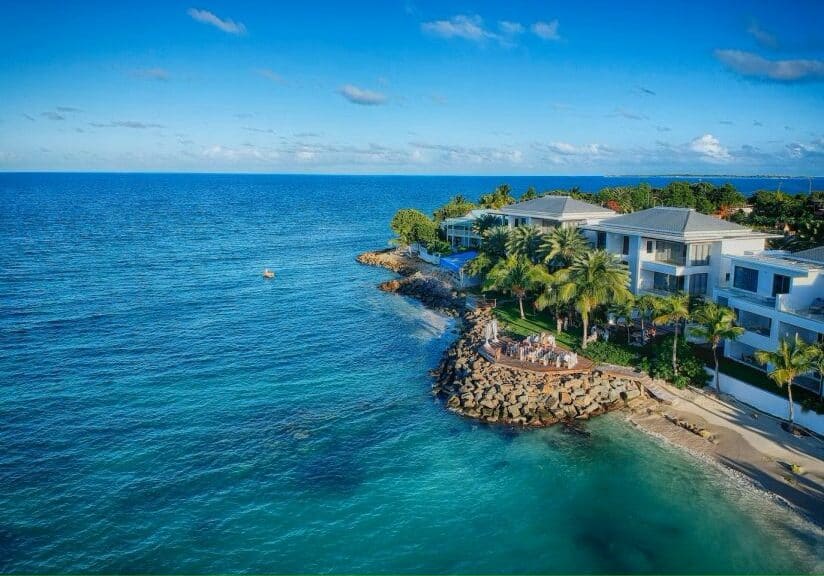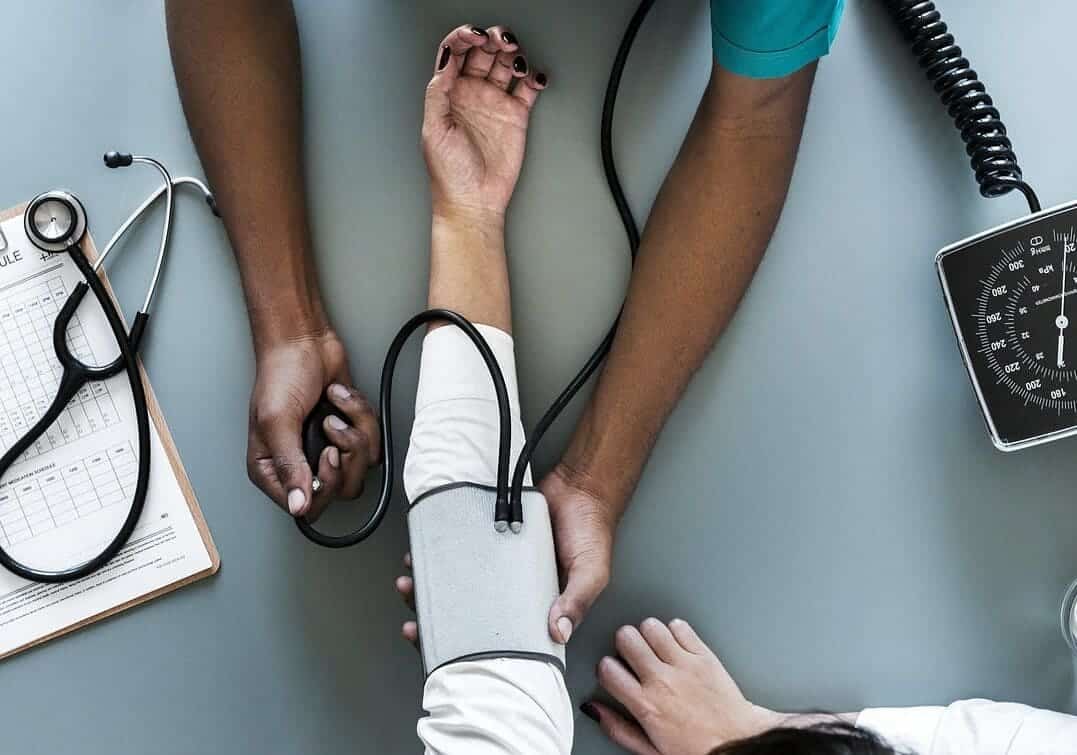If you’re looking to know, ‘Is Antigua safe?‘ you’ll be glad to find that Antigua is one of the Caribbean’s safest islands. With low crime levels and no local laws restricting same-sex relationships, travelers can have peace of mind when visiting the island nation. Keep reading as we take a deeper look into safety in Antigua.
Antigua Safety Overview

Antiguan and Barbuda citizens are known for their hospitality, often greeting visitors and foreigners living in Antigua warmly and offering respectful, helpful advice when approached.
Being in the Eastern Caribbean, the island is prone to hurricanes, especially from June to November. Travelers should monitor local weather updates and have a plan in case of emergencies.
Important safety resources and contacts in Antigua and Barbuda
Antigua and Barbuda Royal Police Force: Responsible for maintaining public safety and law enforcement. Contact: +1 268-462-0125. Emergency contact: 911
Fire Department: Responsible for fire incidents, rescues, and hazardous materials emergencies. Contact: +1 268-461-2807. Emergency contact: 911
Mount St John’s Medical Centre (Main Hospital): Primary medical facility providing emergency services and healthcare. Contact: +1- 268-484-2700. Emergency Medical Services (EMS) contact: 911
National Office of Disaster Services (NODS): Responsible for disaster management and response, including issuing evacuation orders. Contact: +1 268-462-4206
Antigua and Barbuda Meteorological Services: Issues weather updates, storm and hurricane forecasts, and alerts for potential natural disasters. Contact: +1-268-463-4638
Key Safety Considerations
Antigua and Barbuda is considered a safe destination for foreign visitors, with a police force well funded by Antigua taxes, but there are some things travelers should be aware of:
Crime: Violent crime is rare, but petty theft and opportunistic crime can occur. You can do the following to protect yourself:
- Keep valuables locked in a hotel safe.
- Avoid carrying large amounts of cash or other valuables outside hotel accommodations.
- Being aware of your surroundings at all times.
- Avoid isolated areas and districts outside tourist zones, especially after dark.
Water activities:Take extra precautions when partaking in water activities, especially at isolated beaches or far out to sea. Consider advice from local authorities about weather conditions and no-go zones.
Health: Be aware of infectious diseases from insects, such as mosquitoes, ticks, fleas, or flies. The CDC recommends that international travelers be fully vaccinated against measles.
Firearms: Travelers are prohibited from entering Antigua and Barbuda with firearms or ammunition without prior government consent and the necessary documents.
Medical services: Antigua has the country’s primary medical facilities that offer most medical services. Clinics and hospitals are limited in Barbuda.
Crime and Safety Comparison with Other Caribbean Countries
The crime and safety indexes evaluate crime rates and safety, where a high crime index indicates significant crime levels, and a high safety index reflects strong safety conditions.
Country | Crime Index | Safety Index |
Antigua and Barbuda | 57.14 | 42.86 |
Barbados | 47.13 | 52.87 |
The Bahamas | 56.90 | 43.10 |
Guyana | 66.27 | 33.73 |
Dominican Republic | 60.66 | 39.34 |
Jamaica | 67.25 | 32.75 |
Puerto Rico | 61.88 | 38.12 |
Data source: Numbeo
Is Antigua safe for Americans?
Travel advisories from travel.state.gov and cia.gov typically classify Antigua and Barbuda as a safe destination for American travelers. Travel advisories are categorized into four levels:
- Exercise normal precautions
- Exercise increased caution
- Reconsider travel
- Do not travel
With a travel advisory level of exercising sensible precautions, Antigua and Barbuda is classified as a safe destination to visit. US citizens are advised to exercise normal security precautions, such as being aware of their surroundings, using secure and reliable transportation, and avoiding risky areas associated with crime and drug activity.
Driving in Antigua
Public transportation is limited in Antigua and Barbuda, and most Americans turn to Google or browse forums for contacts of private transfer services and local taxis. Visitors planning to rent a vehicle to discover the best things to do in Antigua and Barbuda should know that driving in Antigua and Barbuda is on the left side of the road. American drivers should also acquaint themselves with local driving customs and traffic regulations to avoid accidents and interactions with traffic police, as the country imposes severe penalties for traffic violations.
US driver’s license holders must apply for an International Driving Permit (IDP) to drive in Antigua and Barbuda, allowing them to operate a vehicle legally during their stay.
American drivers should be aware of unique risks when driving on a small Caribbean island, such as encountering local wildlife, navigating narrow or poorly maintained roads—especially in rural areas—and dealing with limited lighting at night. Additionally, drivers should heed warnings from Antigua destination forums and local authorities regarding natural disasters such as hurricane season to avoid flooded roads, landslides, and sudden road closures that can occur due to severe weather conditions.
Vaccine Considerations for Antigua

- Hepatitis A
- Hepatitis B
- Typhoid
- Rabies
- Meningitis
- Polio
- Measles
- Mumps
- Rubella (MMR)
- Tdap (tetanus, diphtheria and pertussis)
- Chickenpox
- Shingles
Although the yellow fever vaccine is not mandatory for entry, Antigua and Barbuda visa requirements for travelers coming from a country with a yellow fever risk within the past six weeks includes presenting yellow fever vaccination certificate issued at least ten days before arrival.
Health precautions
The Antigua healthcare system provides quality services, but like most small island nations, services are limited. Visitors should bring sufficient prescription medications, if necessary, and take out travel insurance with cover for medical evacuation. Applying strong mosquito repellant will also reduce the risk of contracting mosquito-borne diseases.
Antigua Safety at Night
Generally, Antigua is safe to walk around at night, but like any travel destination, visitors must be vigilant at all times, especially at night. It’s wise to stick to well-lit, populated areas to avoid contact with potentially dangerous individuals or attacks. The best towns in Antigua to live or visit as cited in Antigua forums, like Saint John’s, English Harbour, and Jolly Harbour, are well protected and offer a safe experience, with a noticeable police presence at night and facilities catering to night-time activities.
Frequently Asked Questions about Safety in Antigua and Barbuda
Are tourists safe in Antigua?
Antigua is among the Caribbean’s safest countries. There are no laws against same-sex couples. Besides pickpocketing and petty theft, crimes such as sexual assault or attacks are rare. Most beaches in Antigua are safe for swimming and snorkeling.
Is Antigua safe to walk around?
Antigua is safe to visit as one of the safest Caribbean islands. The country is generally safe to walk, whether night or day, particular in towns with the best hotels in Antigua and Barbuda like Saint John. Like most places, tourists should be aware of warning flags, stick to well-lit and populated areas, and avoid exposing valuables like large amounts of cash.
Can you drink tap water in Antigua?
Although water in Antigua is typically safe for drinking, visitors are recommended to drink bottled or filtered water to minimize the risk of stomach upset or reactions to unfamiliar water sources.
What to avoid in Antigua?
To ensure personal safety in Antigua, avoid isolated areas and beaches, especially at night, unlicensed taxis, displaying valuables such as large amounts of money, and illegal drugs. Wearing camouflage clothing is also prohibited.
Which is safer, St Lucia or Antigua?
Both Antigua and Saint Lucia are safe Caribbean destinations for solo tourists and families, with relatively similar crime rates, infrastructure, and risks of natural disasters. Antigua and Barbuda cost of living is slightly more expensive but the country highly-ranked for safety.
When not to go to Antigua?
Antigua is a pleasant destination year-round, but between September and November, the island experiences its highest rainfall and is more prone to severe weather conditions due to the Caribbean hurricane season.
Budget-conscious travelers or those looking to avoid the crowds should consider visiting Antigua outside the peak Caribbean season from mid-June to mid-August when both visitor numbers and costs tend to rise.
Is Antigua safe for female travelers?
Solo female travelers are typically safe in Antigua and Barbuda. For safety, female travelers should follow general precautions, such as not walking alone at night, using only registered taxis, and leaving valuable items like travel documents at accommodations.
Is Antigua safe to live in?
As one of the Caribbean’s safest islands, Antigua is both safe to live in and visit. Numerous Antigua destination forums highlight its safety, and successful applicants of Antigua and Barbuda’s citizenship by investment program live peaceful lives, rarely encountering crime or major safety issues.
Are there risks of using ATMs in Antigua
Given the widespread issue of ATM fraud, often mentioned in Antigua and other country’s destination forums related stories, it’s advisable that visitors use ATMs located in banks in Antigua or other secure, well-monitored areas. Having a small amount of Eastern Caribbean Dollars on hand for daily expenses can help limit ATM usage and reduce the risk of encountering fraud.
Is the English Harbour in Antigua safe?
English Harbour in Antigua island is generally safe, with low instances of crime according to Antigua forums and official crime statistics.
Is Antigua safe for families?
Antigua is safe for families, including those with young children. Children are beloved by locals who will often stop and interact with you and your little ones. Many resorts on the island are family-oriented and offer child-friendly facilities.
Is Antigua safe to leave the resort?
As one of the Caribbean’s safest islands, Antigua is safe to leave the resort, and unlike other Caribbean countries, most guests are not warned not to leave the resort premises due to safety concerns.

 Gizane Campos
Gizane Campos 

